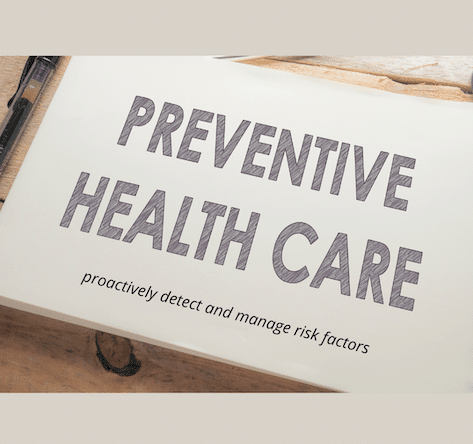
If you have an autoimmune disease such as lupus, ulcerative colitis, arthritis or multiple sclerosis, you know the severe fatigue, feeling older than you are that comes with it.
Much of this is due to damaged mitochondria, which are the powerhouse cells that make energy and fuel your body’s functions. When your mitochondria get damaged, they are not able to fully do their job of producing energy to build tissues, eliminate toxins and repair cells.
Mitochondria become damaged due to genetics, toxic environments and habits, medications, or stress, among other causes. The caveat here is that fueling your mitochondria whether damaged or not, is only a job that you can do! There is no magic prescription that can completely do it for you, this one’s on you my dears, but there are plenty of ways to heal and I will outline five of lifestyle changes to manage your autoimmune disease! Let’s go!
When your mitochondria get damaged, they are not able to fully do their job of producing energy to build tissues, eliminate toxins and repair cells.
1. Stop Eating Junk Food!
This statement sounds like a broken record, but I still find that although people know they need to eat better, they don’t because they don’t know the WHY. The more processed, fast foods, sugars and excessive alcohol you consume, the harder your mitochondria have to work to remove the waste.

And the more you stress the system with poor food choices, the less likely you’re able to eliminate waste and detoxify the harmful chemicals, therefore increasing the toxins in your body and fueling the lupus or autoimmune fire that is waiting to feed on this waste. In turn, you feel worse, your MD increases your medication, and the cycle continues. If you have lupus or another autoimmune disease, check out my last blog here for more specific dietary guidelines to follow.
Tips to make these dietary changes:
- Don’t buy junk – if it’s not in the house you’re less likely to eat it
- Meal prep (or bulk prep is what I like to call it) so that when you’re hungry (or hangry) and want to grab an unhealthy snack, you have healthy food already prepared
- When you are craving something sweet, busy yourself with another activity before diving in. If you still want it after 20-30 min, try a healthier alternative like 80% or higher dark chocolate (lower in sugar and higher in antioxidants), chia seed pudding with berries or a small piece of fruit with nut butter.
- Track your food in a journal or an app so you see what you’re actually eating
Fill up on water, to keep
The more processed, fast foods, sugars and excessive alcohol you consume, the harder your mitochondria have to work to remove the waste.
2. Fuel Your Mitochondria
Fuel your mitochondria properly in order to heal damaged cells and to prevent damage in the future. Think of your mitochondria like millions of little athletes in your body.

Your athletes need the proper conditions and nutrition to thrive and do their job efficiently, which they can’t get from junk food, a stressful, inflammatory environment, or a lot of toxic exposure. If they are trying to survive in an unhealthy environment, they weaken and end up dying prematurely, so now you have fewer athletes (or mitochondria) to clear your body of more toxins! So how do we properly fuel our mitochondria, outside of just a healthy diet?
Clean up your personal and household products. Many of the household and personal cleaning products, make up, lotions, etc we use are very toxic and harmful. Using products that have a high toxic load makes your mitochondria have to work even harder. Check out the ingredients in your products using this website and learn how toxic or safe your products are and which would be a better option. Feed your mitochondria and they will perform well, creating energy and healing your body.
Think of your mitochondria like millions of little athletes in your body. Your athletes need the proper conditions and nutrition to thrive and do their job efficiently
3. Address Your Stress And Calm Your Nervous System
Stress causes an increase in cortisol, which then causes inflammation…everywhere. With chronically increased cortisol and inflammation, it slows processes throughout the rest of the body, including digestion, detoxification and recovery. This is because when you are in danger, these other normal functions are not a priority.

The problem arises when stress becomes chronic, which is so common in society today due to all of the demands and stressors constantly threatening us. The body then has a harder time telling the difference between what is life-threatening and what is just acutely irritating and demanding, but will pass.
Studies show that stress can also be a trigger of lupus and rheumatoid arthritis onset and flares, again due to an increase in the inflammatory cascade that occurs when stress or trauma ensues or is chronic. In a recent study, stress has been highly correlated with autoimmune disease incidence.
To support the healing of your body, it is important to calm the nervous system, relax and let go so that you can control your nervous system, your body’s responses and thus the progression of your lupus or rheumatoid arthritis autoimmune disease. Again, this work must be actively done by you, not your doctor or coach. It takes time to make this a conscious practice and consistent routine.
Tips to calm your nervous system & help improve your autoimmune disease:
1. Begin a daily breath practice to help calm anxiety and slow you down, bringing more control over your nervous system. I recommend an app like Headspace or online YouTube guided breath practices. We also have an awesome Autogenic Training program that guides you through this exact practice, to retrain your nervous system.
2. Ask yourself, what obligations, roles or plans do I have that are not essential and I can substitute with time to relax and heal? It’s very easy to over commit or feel like you always have to be doing something because there is always something to be done. That only increases stress and wreaks havoc on your immune system, which is already taxed keeping up with an autoimmune disease, so free yourself, love yourself and relax.
3. To piggy back off of that…how does one even relax!? Find things that you enjoy doing such as exercise, reading, journaling, doing art, meditation, listening to music, cooking. All of these things can calm the nervous system and decrease cortisol, freeing up energy to allow your body to heal itself.
In a Recent Study, Stress Has Been Highly Correlated with Autoimmune Disease Incidence.
4. Sleep More
Society oftentimes praises those who don’t “need” sleep and can work longer hours, thus making them more productive; however, this notion has changed in recent years, as we now know how vital sleep is for proper healing, functioning and vitality.

According to the National Institute of Health, about 70 million people suffer from a sleep disorder, and poor health is a direct contributor to poor sleep! Research has also demonstrated that the nervous system and the immune system are interdependent and that the neurons (cells of the nervous system) involved with sleep are directly related to the immune system. When you have an autoimmune disease, including ulcerative colitis or lupus, sleep becomes even MORE important to allow the immune system to heal and regenerate.
How much sleep do you need? The average adult needs 7-9 hours of quality sleep on a regular basis. Less than that doesn’t allow your immune system to do the work it needs, plus your brain won’t be able to fully function without that sleep. Some studies also show that getting to bed by 10pm allows for deeper, more restful sleep. What may be more important though is having a regular sleep schedule, meaning going to bed and waking up at the same time everyday. This helps regulate your circadian rhythm, which is extremely vital to maintaining a healthy immune system (see Stress above!)
When You Have An Autoimmune Disease, Including Ulcerative Colitis Or Lupus, Sleep Becomes Even MORE Important To Allow The Immune System To Heal And Regenerate.
5. Exercise Often
Because autoimmune diseases range in symptoms and severity, you must listen to your body when it comes to movement or exercise. For some, walking is all that is possible, but for others more strength training may be appropriate. Despite intensity, exercise has proven to be an important part of an autoimmune protocol.

This is due to the encouragement of circulation to help oxygenate and supply nutrients to tissues, remove debris and support detoxification. Unfortunately autoimmune diseases such as lupus and Hashimoto’s hinder the body from proper blood flow and oxygenation, making certain tissues more vulnerable to inflammation and damage.
Due to the anti-inflammatory effects of exercise, strong evidence has shown it to be protective against chronic disease and promotes healing of various tissues and systems. On the same note, exercise releases nitric oxide, which is a naturally occurring gas in the body that tells certain metabolic functions to occur. Nitric oxide is most well known for its effect in dilating blood vessels and promoting blood circulation. Without going into too much science, I will say that there are three different kinds of nitric oxide and the form that is usually elevated in autoimmune inflammation can be destructive to body tissues. But the way to combat this inflammation and destruction is to exercise! Exercise releases a different type of nitric oxide, which aids in tissue recovery and regeneration. Nitric oxide plays a big role in regulating the immune system and taming lupus and autoimmune symptoms and flares.
When it comes to exercise and autoimmunity though, you must listen to your body to assess how you feel each day and do the work that is appropriate for your condition. Push yourself to get the work done, move your blood and sweat a little, but don’t push yourself so hard to trigger a flare. If you are feeling fatigued or weak and have enough energy to do something light, you may recover faster than if you didn’t exercise at all. What is most important is consistency and moving daily, even if lightly.
You have to put in the effort to reap the benefits. The above suggestions will help to improve your recovery and prevent worsening of your autoimmune disease, however you still have to do the work. You may find benefit in consulting with a naturopathic medical doctor to help guide, encourage and individualize a plan for you, but know that there is no one magic pill. Additionally, these suggestions are not meant to replace your medication or encourage you to stop your current medications because that could be very dangerous. Once you have made some progress on dialing in your nutrition and lifestyle habits, then you can work with a doctor to begin to wean off of your medication, if that is a goal of yours. Moreover, YOU are the hero in your journey. You have ALL the power you need to heal your body and mind, it’s already within you! And you have the most important role in reversing your autoimmune disease and regaining your vitality. Start slowly, do the best you can, be patient, consistent and seek help when you need it!





